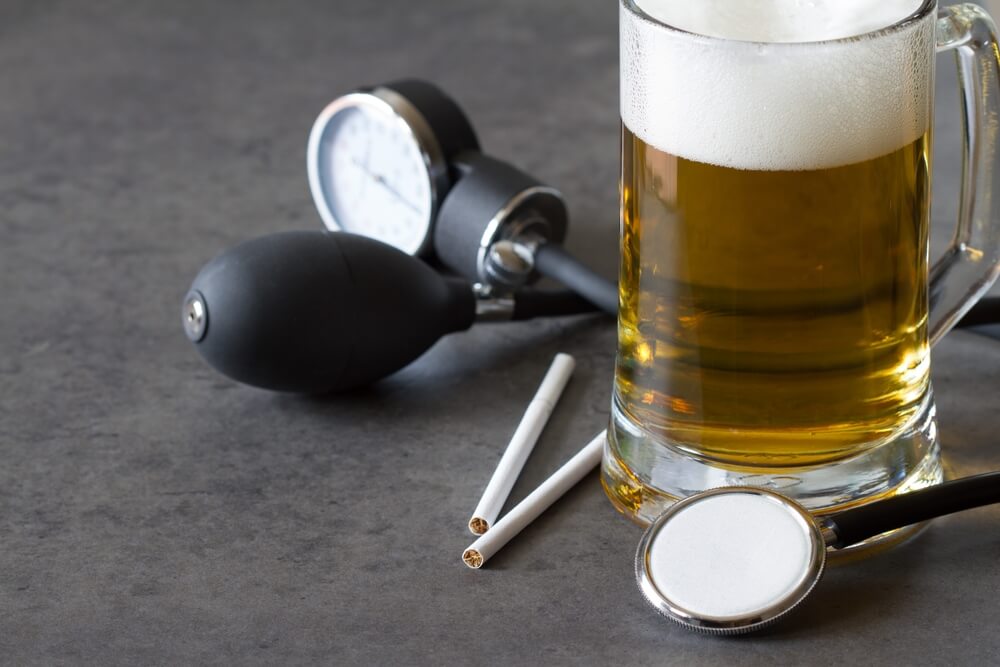The Silent Link: Exploring the Connection Between Alcoholism and Blood Pressure

Alcoholism, characterized by excessive and compulsive alcohol consumption, is a widespread public health concern that affects millions of individuals worldwide. While the immediate effects of alcohol abuse are well-documented, its long-term impact on physical health, including blood pressure, is often overlooked. In this blog, we’ll delve into the complex relationship between alcoholism and blood pressure, exploring how excessive alcohol consumption can contribute to hypertension and other cardiovascular complications.
Understanding Blood Pressure
Blood pressure is the force exerted by the blood against the walls of the arteries as it circulates through the body. It is measured in millimeters of mercury (mmHg) and consists of two values: systolic pressure (the pressure when the heart beats) and diastolic pressure (the pressure when the heart is at rest). Normal blood pressure readings typically fall below 120/80 mmHg, while readings above this range may indicate hypertension, or high blood pressure.
The Impact of Alcoholism on Blood Pressure
Excessive alcohol consumption can have a profound impact on blood pressure regulation, leading to hypertension and other cardiovascular complications. Alcohol acts as a vasodilator, causing the blood vessels to relax and widen, which initially results in a temporary decrease in blood pressure. However, chronic alcohol abuse can disrupt the body’s ability to regulate blood pressure properly, leading to long-term elevation of blood pressure levels.
Alcohol-induced hypertension is often characterized by:
- Increased sympathetic nervous system activity, which can lead to vasoconstriction and elevated blood pressure.
- Disruption of the renin-angiotensin-aldosterone system, which plays a key role in regulating blood volume and pressure.
- Impaired baroreceptor function, which affects the body’s ability to sense and respond to changes in blood pressure.
The Consequences of High Blood Pressure
Untreated hypertension can have serious consequences for cardiovascular health, increasing the risk of heart attack, stroke, heart failure, and kidney disease. Individuals with alcohol-induced hypertension are also at greater risk of developing alcohol-related liver disease, which further exacerbates the cardiovascular complications associated with heavy drinking.
Managing Blood Pressure in Alcoholism Treatment: Addressing alcohol-induced hypertension requires a comprehensive approach that includes both alcoholism treatment and management of cardiovascular risk factors. Treatment strategies may include:
- Abstinence from alcohol to prevent further damage to the cardiovascular system.
- Medications to control blood pressure, such as angiotensin-converting enzyme (ACE) inhibitors, beta-blockers, and diuretics.
- Lifestyle modifications, including dietary changes, regular exercise, stress management, and smoking cessation.
The link between alcoholism and blood pressure underscores the importance of addressing alcohol abuse as a significant risk factor for hypertension and cardiovascular disease. By understanding the impact of excessive alcohol consumption on blood pressure regulation and implementing effective treatment strategies, individuals can reduce their risk of alcohol-related cardiovascular complications and improve their overall health and well-being.
If you or someone you know is struggling with alcoholism, seeking help from a healthcare professional or addiction specialist is the first step towards recovery and better cardiovascular health.





